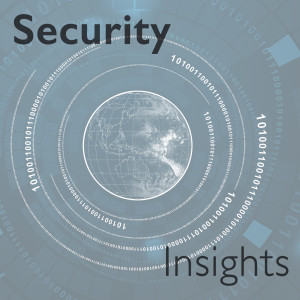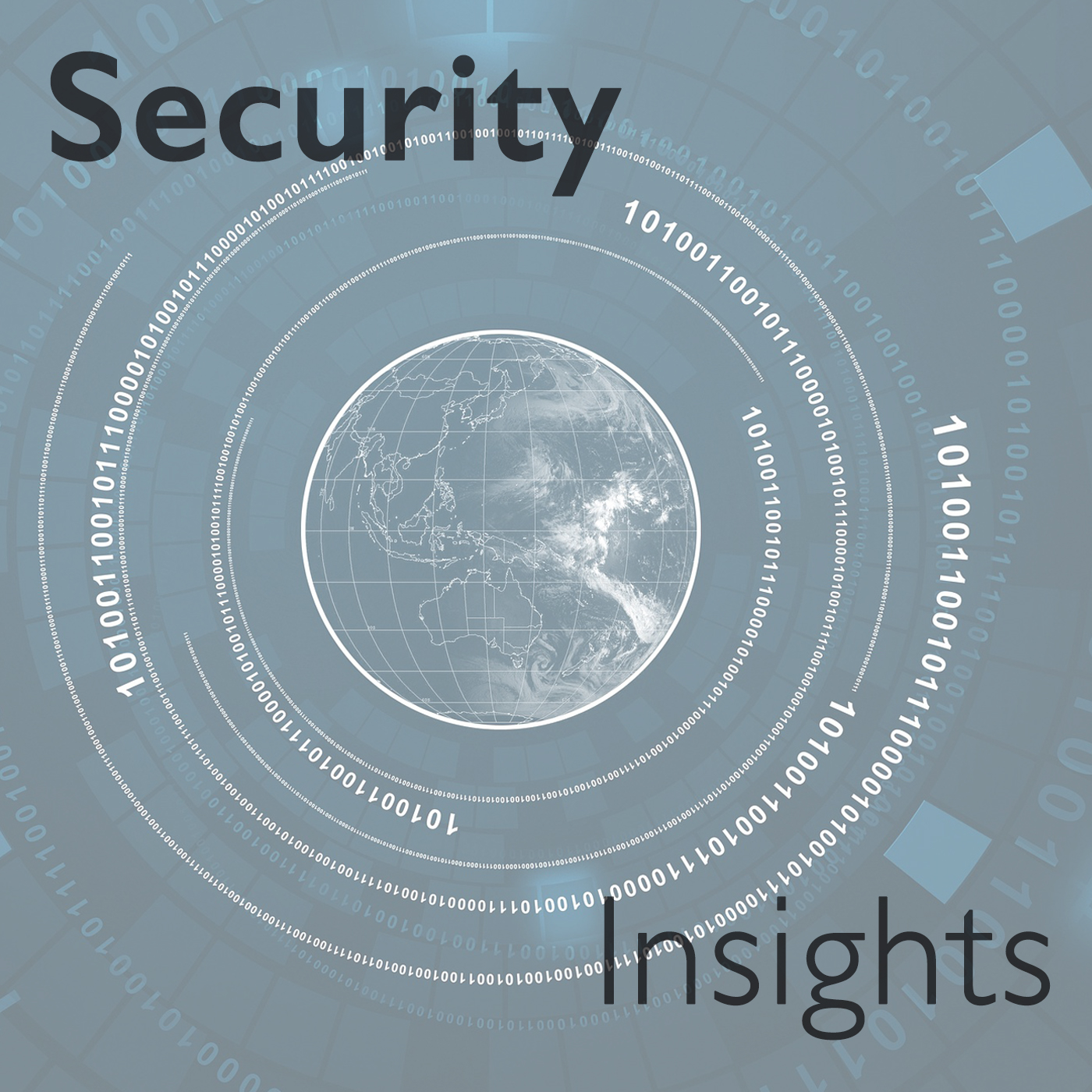Episodes

Thursday Feb 08, 2024
Cyber governance: a new UK code of practice?
Thursday Feb 08, 2024
Thursday Feb 08, 2024
The UK Government's Department of Science, Innovation and Technology (DSIT) is consulting on a new code of practice for business leaders, which aims to "improve cyber resilience across the UK economy".
But how will this operate, and will another code of practice -- alongside a host of existing laws and industry regulations -- help organisations be more secure?
We discuss this with our guest Amanda Finch, CEO of the Chartered Institute of Information Security.
Listeners can find out more about the proposed Code of Practice and the consultation on the UK Government's cyber security site.

Thursday Jan 25, 2024
Web apps and security weaknesses
Thursday Jan 25, 2024
Thursday Jan 25, 2024
As many as a third of serious vulnerabilities could be in web applications. But securing web apps, APIs and web-based interfaces is a challenge.
In this episode, we look at why vulnerabilities have seen a steady uptick over the last few years, how identifying and securing vital web applications is essential to enterprise security, and why a fixation on technical CVEs does little to boost defences.
Plus, why both security pros and reporters like a pie analogy.
Our guest is Alex Kreilein, vice president for product security at Qualys. Interview by Stephen Pritchard.
Listeners can also view the Qualys research on the firm's blog.

Thursday Jan 11, 2024
Security in 2024: AI, skills, and a seat on the board
Thursday Jan 11, 2024
Thursday Jan 11, 2024
What are the key security challenges for 2024? And how will CISOs address them?
In our first episode for Series 5, Security Insights is joined again by Chris Dimitriadis, Chief Global Strategy Officer at ISACA.
He explains why AI both poses risks, and offers benefits, why the cyber skills shortage is not going away, and how cybersecurity's voice needs to be heard by the board.
Interview by Stephen Pritchard.

Thursday Dec 28, 2023
Security Insights: 2023 year in review
Thursday Dec 28, 2023
Thursday Dec 28, 2023
In our final episode of this season, and indeed for this year, we look at some of the key trends in cybersecurity during 2023. And we discuss some of the steps CISOs might need to take, to safeguard their organisations in 2024.
Our special guest is the CEO of the Chartered Institute of Information Security (CIISec), Amanda Finch.

Thursday Dec 14, 2023
Cyber: crime’s digital economy
Thursday Dec 14, 2023
Thursday Dec 14, 2023
Nothing seems able to stop the growth of cybercrime. And ransomware, above all, has woken up boards to the threat.
But there is more to cybercrime than ransomware, and the drivers behind online crime are varied too. And the scale of the problem means that few, if any, organisations can tackle it alone.
Our guest this week is security expert, chief scientist at Rapid 7 and Europol EC3 adviser Raj Samani. He talks to Stephen Pritchard about why cybercrime is far more than an IT security issue, and why a range of responses will be needed to reduce the threat.

Thursday Nov 30, 2023
Quantum computing: a security risk?
Thursday Nov 30, 2023
Thursday Nov 30, 2023
Could quantum computing threaten our day to day security, and even the fabric of the internet? Researchers are increasingly concerned about the risks quantum technology poses to encryption.
Organisations need to act now, if they are they are to secure their data and their operations, argue this week's guests.
Ramy Shelbaya is CEO and co-founder of Quantum Dice. That’s a business spun out of Oxford university’s quantum optics lab – and which is now using quantum mechanics to create a self-certifying quantum random number generator.
And Axel Poschmann is a cybersecurity expert with a background in both the industry and academia. Currently, he works at PQShield, another business with links to Oxford, and which specialises in quantum-resistant cryptography.
We asked them to explain why quantum threatens security, and what CISOs can do about it.
Interviews by Stephen Pritchard

Thursday Nov 16, 2023
The Cyber Resilience Act: a law with unintended consequences?
Thursday Nov 16, 2023
Thursday Nov 16, 2023
The upcoming European Cyber Resilience Act sets out to boost security for anything with “digital elements”.
The Act will apply to hardware and software. The idea is to make it easier to update devices, and to fix any vulnerabilities.
Why, then, has a group of cyber security professionals written an open letter to the European Commission asking them to change a key part of the proposed rules?
Experts are concerned that, by requiring organisations to disclose vulnerabilities within 24 hours, the Act could increase, rather than reduce, risks.
Our guest today is Christine Bejerasco, CISO at WithSecure and one of the signatories of the letter.
We asked her to set out the background to the Act, and why so many security professionals fear it could have unintended consequences.
Interview by Stephen Pritchard

Thursday Nov 02, 2023
Open source: a security risk?
Thursday Nov 02, 2023
Thursday Nov 02, 2023
As many as 96 per cent of vulnerabilities in open source software are because developers use an outdated, or unpatched version of the code.
And this matters, because open source is now the building block of almost all enterprise software, web applications, and even the code that runs consumer technology.
But open source can be secure. It just needs developers, and the organisation they work for, to think about security throughout the software lifecycle.
With guest Brian Fox, CTO and co-founder at Sonatype.

Thursday Oct 19, 2023
Automation and the cybersecurity skills gap
Thursday Oct 19, 2023
Thursday Oct 19, 2023
The cybersecurity industry faces an ongoing -- and some say worsening -- skills gap.
Both the private and public sectors need more skilled security professionals, as more operations go online. And there is only so much the education system, or training within the business, can do to solve the problem.
So do we need to rethink how cybersecurity operates? Perhaps it is time for the industry to undergo its own digital transformation, and look at automation to take the load off human professionals.
Our guest is Marie Wilcox, board director at the Chartered Institute of Information Security and also security evangelist at Panaseer.

Thursday Oct 05, 2023
Cyber resilience: are we prepared?
Thursday Oct 05, 2023
Thursday Oct 05, 2023
Most boards -- and certainly all CISOs -- now understand that it is not if a cyber attack happens, but when.
None the less, organisations are not doing enough to ensure that they can continue to operate during a cyber attack, and recover from it.
And the latest UK Government Cyber Security Breaches survey goes further, suggesting that not only are organisations failing to invest in cyber security, but in some cases, are going backwards. They are paying less attention to the basic "cyber hygiene" measures that can help prevent breaches in the first place.
Our guest this week is Prof. Steven Furnell, professor of cyber security at Nottingham University,a senior member of the IEEE, and one of the researchers for the Cyber Security Breaches survey.
In this episode he discusses the pressures that could be prompting organisations to cut back on security, comparisons between cyber and "physical" crime, the need for awareness and resilience and what we need to do in a world where cyber attacks are now endemic.
Interview by Stephen Pritchard

